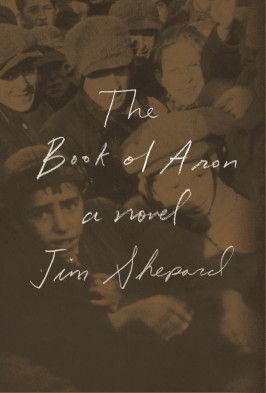
This novel consists of the first-person narrative of a young Jewish boy, Aron, in Poland; beginning in the late 1930s, it follows his family as it moves to Warsaw and, inevitably, into the ghetto following the German invasion. What I read about the book before I started it indicated that it would be primarily a story about Janusz Korczak, a real historical figure, who ran the principal orphanage in the Warsaw ghetto and was a passionate advocate for the rights of children. Really, though, he doesn’t feature in the story, except in glimpses, until about two thirds of the way through, when all of the other adults in Aron’s life have been taken from him.
I’m a big fan of serious books narrated by child protagonists, as my recent comments on To Kill a Mockingbird will evidence. This one, though…it was perplexing. Aron is much older than his years; on moving into the ghetto, he immediately bands together with other urchins to commence a smuggling operation in order to feed his family, finding or making secret ways out of the ghetto, cultivating relationships with officials he can bribe, and developing a very specific set of skills* that made me, twenty years his senior, feel vastly useless by comparison. He’s a survivor, always on alert and understanding the nuances of his environment and the behaviours of people in it. What left me confused, however, was that while it was always clear to Aron what was going on, the reader was never given an explanation. For example, when a member of the Jewish police force attempts to coerce Aron into turning informant against his smuggler friends, all of the language was coded, and it took me a long time to work out that’s what was going on. I could understand it if the behaviour of these people was also confusing to Aron and presented as mysterious and inexplicable; it’s a weird choice, however, to leave just the reader in the dark. It also has the result that, while the events around Aron are described in detail, there is little or no description of what he thinks about them, and his inner life remains largely a mystery: no small feat in a first-person narrative.
Ultimately, this is a holocaust novel, and it doesn’t hold back. The reader always knows that most, if not all, of the characters will be dead by the end of the novel: Inglourious Basterds aside, no deus ex machina is going to intervene where actual historical figures are concerned. I’ve read better holocaust novels (I should say Elie Wiesel, and I do, but honestly, Schindler’s Ark, though pop, is pretty amazing), and heaven knows I’ve read worse ones (Yann Martel, I’m looking at you). The Book of Aron is somewhere in the middle.
Look, there are SO MANY important stories, so many individuals who did astounding things, small things, necessary things and unnecessary things in the holocaust, and all those people deserve to be remembered through literature. If every decent novelist picked one and wrote her or his story, we’d still have material available decades from now. How many books are there about Goebbels? Janusz Korczak deserves at least twice as many. I’m glad this book was written, and I’m glad I read it. I think it could have been written better, that’s all.
*Liam Neeson voice